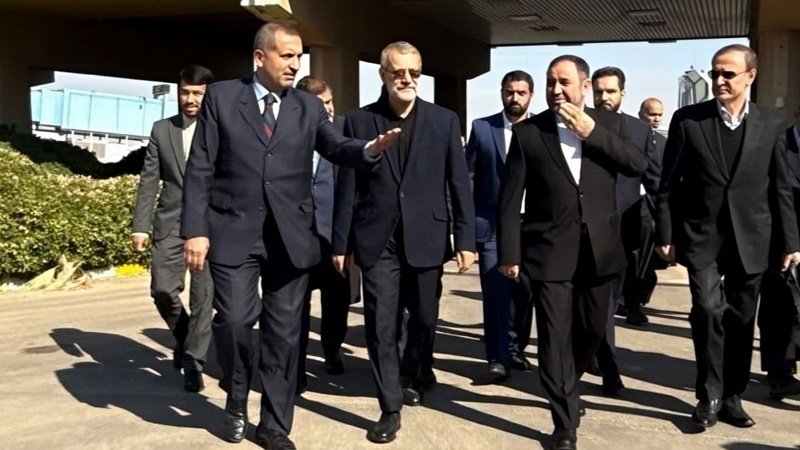Ali Larijani, advisor to the Leader of the Islamic Revolution, traveled to Damascus on Thursday as the first destination of his regional trip to exchange views with senior Syrian officials on regional developments and bilateral relations.
The senior advisor to the Leader of the Islamic Revolution then traveled to Beirut to meet with Lebanese officials.
Larijani arrived in Beirut on Friday, which is the third trip of a high-ranking Iranian official to Lebanon in about 40 days.
In recent weeks, Iranian Foreign Minister "Abbas Araghchi" and Parliament Speaker "Mohammad Bagher Ghalibaf" also exchanged views with senior Lebanese officials on various issues, including the continuation of the Zionist regime's crimes in Lebanon and Gaza.
One of the points that was noticed by the media during the trip of Larijani to Beirut was his entry into Beirut airport, in a situation where the Zionist regime's army was simultaneously bombing areas around this airport. This issue had a wide reflection in social media.
Ali Mokhtarzadeh, a user on the social media platform X highlighted Larijani’s courage during his trip to Beirut and Damascus, referring to Imam Hussein (PBUH), the grandson of the Prophet of Islam, as his role model.
Mokhtarzadeh wrote: The peace-seeking warriors of the great Iran are busy performing their assigned missions across the geography of resistance without any hesitation. Inspired by Imam Hussein (PBUH), an Iranian commander leads from the front, whether in diplomacy or on the battlefield, standing at the heart of the conflict.
Another Iranian user of the X social network, Mohebbi, compared the behavior of Iranian and Zionist politicians during the attack.
He wrote: "Fear" is a vague word for Iranians. If it were Zionist officials, they’d all be looking for shelters. But Ali Larijani and his team are casually walking around during an Israeli airstrike.
Messages of Larijani's trip to Damascus and Beirut
The first message: The trip of senior Iranian officials to Beirut and Damascus in recent months has a special message; That the Islamic Republic supports the axis of resistance under any circumstances, and the lies and media hype have no effect on this central strategy of Tehran.
The second message: Western media have tried in recent months and weeks to show that Damascus is moving away from Tehran and getting closer to the Western-Arab axis; A claim that was accompanied by various lies. In such circumstances, the discussions raised during Larijani's trip to Syria show that Tehran and Damascus are still taking steps to develop bilateral relations and have common views on regional developments.
The third message: Larijani's trip to Beirut took place at a time when, according to media reports, the US ambassador to Beirut had handed over a draft agreement to Nabih Berri, the speaker of the Lebanese parliament, for a ceasefire between the Zionist regime and Hezbollah; a draft that is said to have been drawn up with the direct opinion of Donald Trump, the President-elect of the United States.
Therefore, Larijani's trip and Tehran-Beirut consultations on a ceasefire in Lebanon indicate that Iran supports the establishment of a real and not imposed ceasefire.
The fourth message:
Larijani's meeting with senior Lebanese officials showed that, contrary
to the hype of American and Western media, the strategic cooperation
between Tehran and Beirut has not been disrupted. In recent days, some
American media have tried to show that there are differences between the
two sides by quoting unrealistic quotes from some Lebanese officials,
such as Nabih Berri; They were also denied by Nabih Berri.
/129

